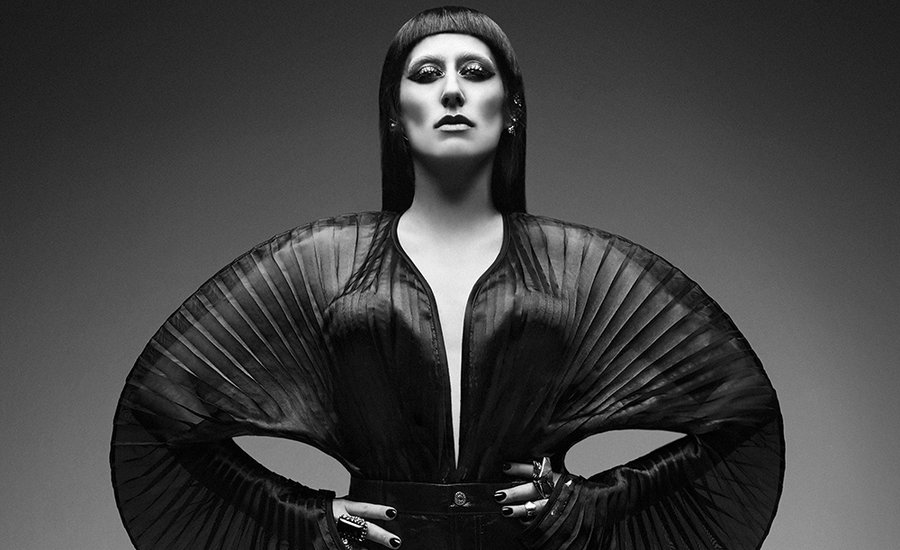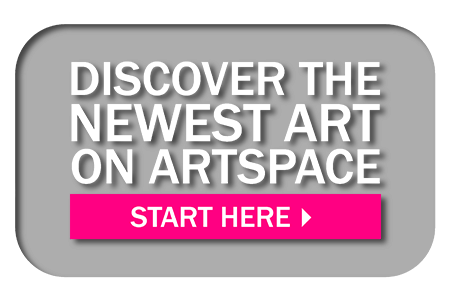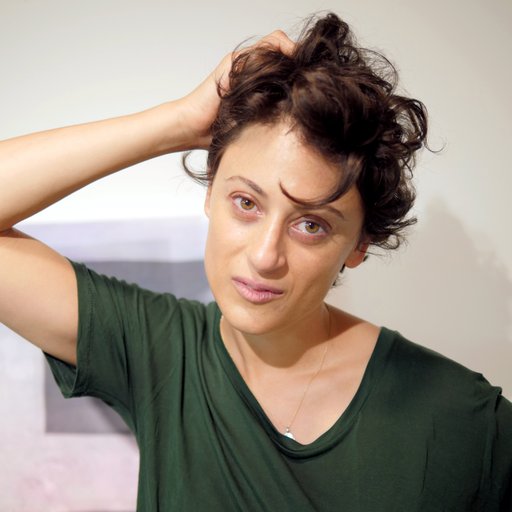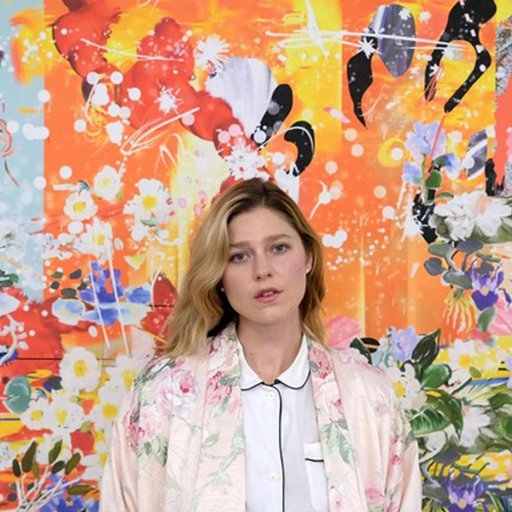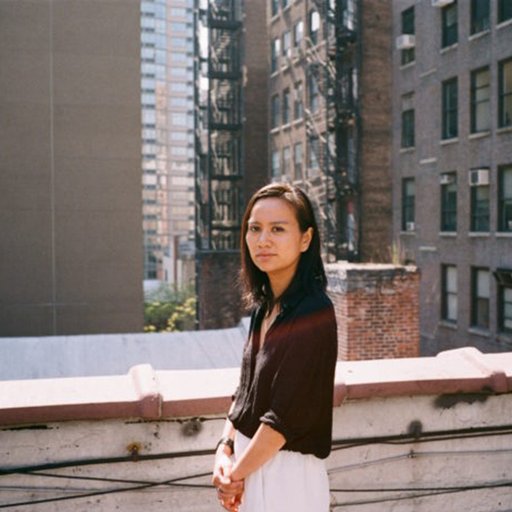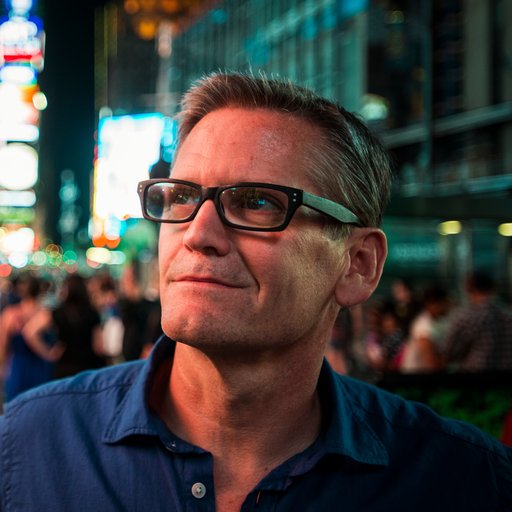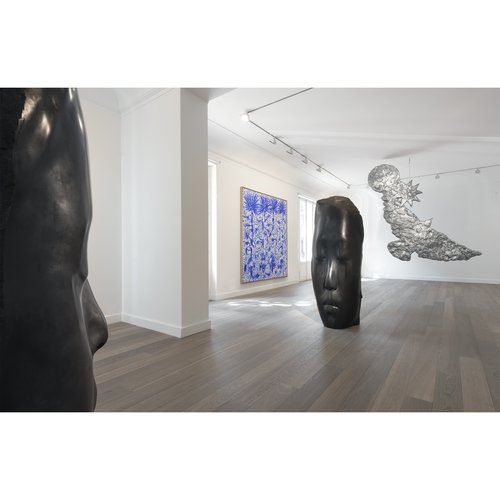Artspace is collaborating with The Creative Independent, a resource for artists with a deep archive of interviews, wisdom, and how-to guides, to bring you key learnings from visual artists about the creative process. This article, by T. Cole Rachel, was originally published on June 17, 2018.
Ladyfag is a New York City based writer, performer, nightlife personality, and events producer. She is the mind behind such long-running NYC parties as Battle Hymn, Holy Mountain, 11:11, Mouth Your Body, and was dubbed “a nightlife sorceress” by the New York Times and “the woman saving New York nightlife” by Paper. This summer she introduces Ladyland, an an outdoor queer music festival that will feature local art, a Pop Souk market, and over 11 hours of live entertainment. Here she discusses curation and event planning as a creative act, the invisible work involved in throwing a perfect party, and why nightlife continues to be one of the most potent incubators.
You’ve made a career out of working in nightlife, which is a world that often doesn’t get enough credit. In many ways, nightlife is the creative engine of a city—people don’t realize how much in popular culture springs directly from club culture. Fashion, music, and art, especially.
Exactly. I think of nightlife as a kind of underrated art form. It’s definitely looked down upon in certain circles, but it’s so underrated. In a way, it’s this nexus of all the different art worlds, all in one. Nightlife is music, it’s dance, it’s creative set designs, it’s fashion, it’s lighting design. There’s so many different aspects of the art world that are taking place in a nightclub… and it’s happening in real time. It’s this incubator for all these different arts to come together and to see what happens. My job is to put all the different things into this petri dish, which is the night club, and then go, “Boom!” And see what happens.
I agree though, club culture is definitely overlooked and underrated and definitely thrown off to the side, it’s like, “Oh! It’s just a party.” And sure, there are parties that are parties for party’s sake, but I think nightlife, and especially queer nightlife, is a breeding ground for creativity. It’s where everything comes together.
Your creative practice encompasses a lot of other stuff, too. You’re a writer, a visual artist, a curator, and you’ve also helped raise tons of money for LGBTQ people. That being said, is it frustrating when people just refer to you as someone who throws parties?
That is probably why I don’t have a website. People don’t even always realize exactly what I do, but it’s also hard to try and explain. It’s like, “Oh, you’re an event producer.” Well, sure! I’m an event producer. Or I work in fashion, or I’m a writer, or I’m a creative director or a curator. Sure! I do all those things… but it’s still hard to explain what I really do. To me, all these things are interconnected.
For me, it feels very natural, but I think people want to box you into different things. For me, the whole point of working in nightlife is that you can’t really be boxed in. It’s much simpler for people to say, “Oh, you throw a party.” But no, it’s not just a party. It’s a community center, it’s an art show, it’s a performance. It serves as so many different things. I try not to take too much offense. People say, “Oh, you throw some parties!” I’m like, “Sure, yeah! I throw parties!” If that’s the way you want to look at it then it’s fine. I throw parties.
Ladyfag
Ladyfag.
Working in nightlife is such a funny, aspirational thing. Lots of kids come to NYC with dreams of being a party promoter, or with this fantasy of somehow inventing themselves in that world, but very few people can actually make it happen. What do you think it is about your personality that makes you good at what you do?
Well first off, I didn’t actually come here to do this. I feel like a lot of these things found me. I like working with artists, which is what a lot of my work actually involves. When people say, “Oh cool, you just throw parties!” They don’t usually realize what that actually means. These events don’t just throw themselves. There’s a ton of work that happens behind the scenes to make a good event appear effortless, or make it appear that I don’t do any work. It’s a bit of an illusion in that way. I’m always supposed to just be there hanging out and having the best time, making sure everyone else is also having a good time too. You have to be a bit of a magician.
Most people don’t realize how nerve-wracking it is to do a big party in a city like New York. A lot of money is involved and lots of people.
There’s a lot of money and people involved. It’s not just me, it’s not just the venue, there are also the artists you hire, your staff, your door people. At this point I have a really good team of people, but if I don’t work, they don’t work… which is scary! I am now responsible for the livelihood of several people… or at least a part of their livelihood, which is something I take very seriously. It might feel like you’re just doing these fun events, but if you do it long enough you suddenly realize that the stakes have slowly grown higher. I’m providing something for people—a lot of them younger kids—who make a home within the communities that these parties provide. You have to take it more seriously, because if you provide something you can’t just take it away.
When you’re doing this kind of work—especially in the early days—how do you manage to make it work financially, especially in an expensive city like New York?
People may or may not know this, but for the first many, many, many years that I lived here, I couldn’t really make it work. I had many jobs. I would also be out on the subway in the middle of the night after an event, half naked in some crazy costume, because I could never afford to take a cab.
It wasn’t like I walked in and suddenly I had this career. I worked for a very long time to get it. I found the stuff that I enjoyed doing and the stuff that I’m good at, by testing it, by trying things out. It wasn’t a calculated career path. It wasn’t as if I went to school and they’re like, “Great! Now you work in nightlife!”I certainly made mistakes along the way. I took in what I experienced and figured out what I was passionate about. To be honest, I also saw so many holes—things that I thought were missing—and tried to fill them. I didn’t invent the wheel, by any means, but I’ve always tried to create new experiences for people.
Going from throwing bigger and bigger parties to now curating your own festival feels like a logical leap.
I’ve actually been playing with this idea for a few years now, but I realized that if I did it, I would want to do it in a big way. That’s how I work. I’m always dreaming big and then working from there. Go with the biggest idea and then scale it down until it’s something workable. And if an idea is gnawing at me, just not going away, I’m like, “Okay, I’ve got to do that, because I can’t stop thinking about it.” A lot of the different things that I’ve done and the connections that I’ve made over the years, have led me to the point to be able to do this. If I had tried to do this a few years ago, I don’t know how it would have turned out. Having years of production experience is important, because this is such a big undertaking. You’re dealing with permits and fire codes and organizing the safety and entertainment for thousands of people, not to mention having nearly a hundred artists who all have demands and technical needs.
I did a party in Milan for about five thousand people that took place in an old glass factory. We had only a few weeks to convert the space and sort out this huge production. Suddenly you’re trying to figure out how to have enough bathrooms for five thousand people when there isn’t any workable plumbing. That’s the real behind the scenes stuff that you learn about from years of doing stuff like this. You don’t just wake up one day and say, I’m gonna put on my own music festival! It would be impossible.
Ladyland in Brooklyn, 2018.
A lot times people have the idea that creative work is somehow not actually work. In regards to nightlife, it’s easy to take for granted that people who are really great at it—and who are financially successful—have put in a million hours of going out and showing up and really treating it like a job.
I think it’s a matter of passion. There are a lot of different ways to make money in this world, but if that is all I wanted to do, I’d probably switch my path, you know? I’d just be doing straightforward event production for rich clients or something, which isn’t very creatively fulfilling. That’s just not who I am. This work feels like part of a much bigger picture. This is a creative outlet for me, sure, but this is also my community. You can’t deny that part of it is a business, but I hope it’s always clear that this is my heart and my passion. Otherwise, I don’t think this path would have worked for me.
The community aspect of what you do is important. A lot of people find their footing in a new city directly via nightlife. When kids ask me about “networking” I always just tell them to go out more, dive into the community that you actually want to be a part of.
Kids nowadays are often really stuck online. There are, of course, positives and negatives to the internet and online culture, but I know from my own experience that things really only happened for me because I was going out and being a part of something in real life. That’s how you found your people—you went out and searched for them, usually in these weird creative spaces, often clubs, where there was a kind of freedom to just be whoever and whatever you wanted.
Now I just want there to continue to be those spaces—environments that are not online—that can provide that. Places where people can interact and be freaks together. That gets harder and harder to do with the internet. Now people just google things, which is just basically seeing the aesthetics of things, the surface. They aren’t really living it. They’re emulating things they see online. I want to provide the physical space where those things live. Real freaks, we find each other.
Do you think of yourself as an artist?
I think of myself as… you know, that’s a hard question. It’s not that I’m not an artist, but I think it depends on what you think an artist is. I like to think of myself as a creator and someone who makes things happen. I’m especially happy to be creating platforms for other artists. That is such an important element of what I do. I think that’s important work, being someone who can create roles for people. Some people might call that being a “creative director” but I think it can be so much bigger than that. My job is making magic happen by bringing all sorts of magical things together. It’s about creating the ultimate creative space.
A popular narrative in our culture right now is that nightlife and club culture—particularly gay bars—is dying because of the internet. In my experience the people who are usually saying this are also people who don’t actually go out in the first place, but what do you think?
When people say nightlife is dead now, it just makes me laugh. You just stay home and watch Netflix and keep saying that, but we’ll still be out here doing what we do. Just because the landscape of nightlife has changed, it doesn’t mean it’s over. It maybe just means that you are a little bit over… and that’s fine! Just because you’re not there or you can’t be a part of it anymore, that doesn’t mean that it no longer exists.
It’s impossible to say that nightlife hasn’t changed at least a little bit due to social media. People have different ways to connect to other people, but that doesn’t mean that nightlife is not still a thing. It’s not just a creative outlet for people, it also provides a space for them to actually find themselves and grow. People will always crave physical interaction and real life experiences. The club is a place for people to network, sure, but more than that it’s a free zone for people to try things out and really become who they are.
Ladyfag recommends:
1. White wine at lunch to get you ready for white wine at dinner
2. Picnic blanket, a stack of magazines, sunflower seeds you need to shell yourself, and a bottle of white wine. (Not the same bottle as you already drank.)
3. Playing Scrabble by the rules, but without a timer and a bottle of wine (I know, I know, but… Chablis!
4. Antique markets on weekends in every city
5. Eating street tacos in Mexico City (especially at the Lagunilla antique market)
6. Lifting your friends up (figuratively speaking, but not against it literally)
7. Cleaning your house in high heels, it feels absurd and strangely fabulous
8. Spending more time doing things than talking about doing things
9. Going to Berghain on Sunday afternoon and not leaving Panorama Bar until they kick you out on Monday
10. Dancing to Michael Magnan and Honey Dijon
11. Memento Mori
12. Skunk Anansie
13. Telling your friends how much you love them for no reason
14. Working hard, partying harder, taking time to relax even harder still
15. Never shaving your armpits
16. Going to LadyLand, obviously!
RELATED ARTICLES:











